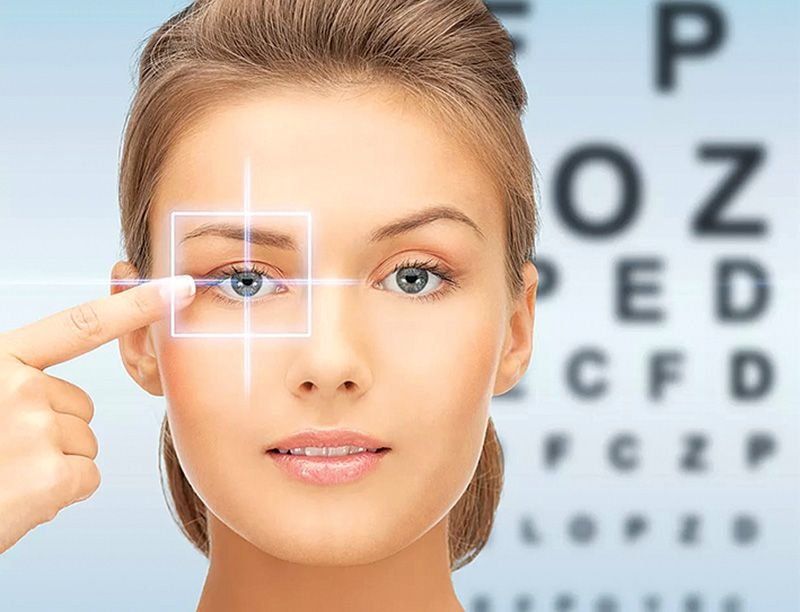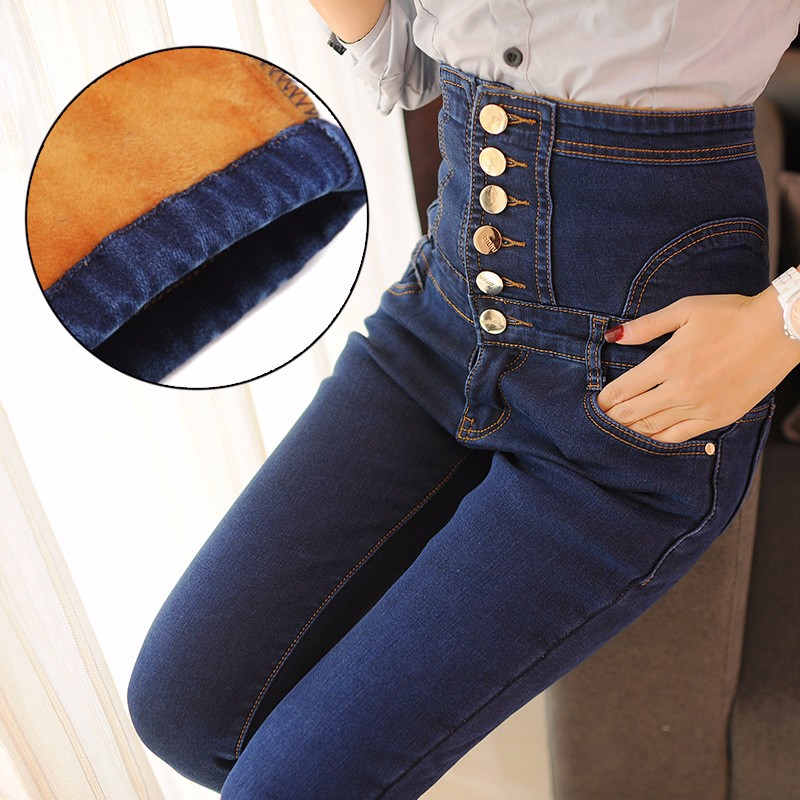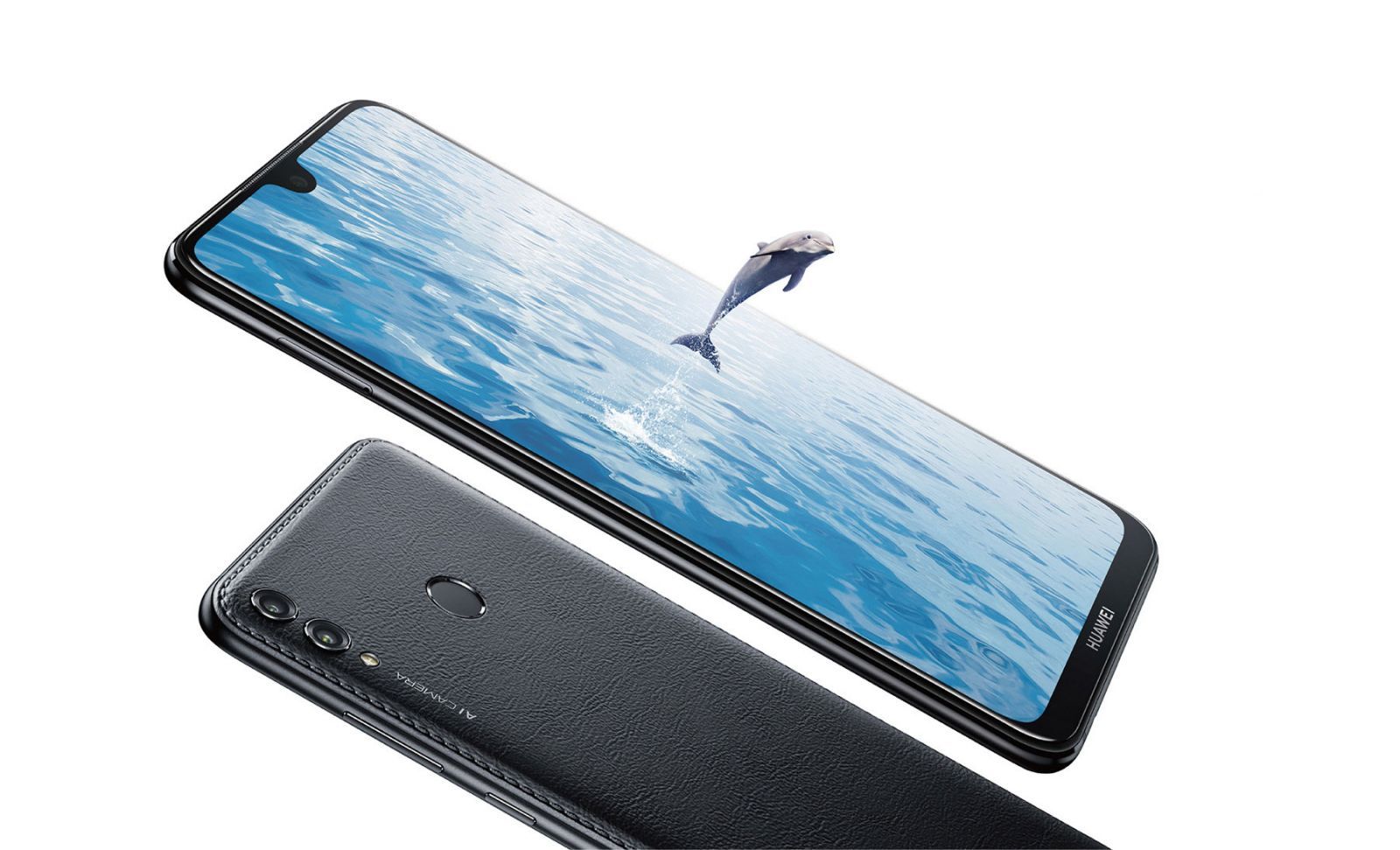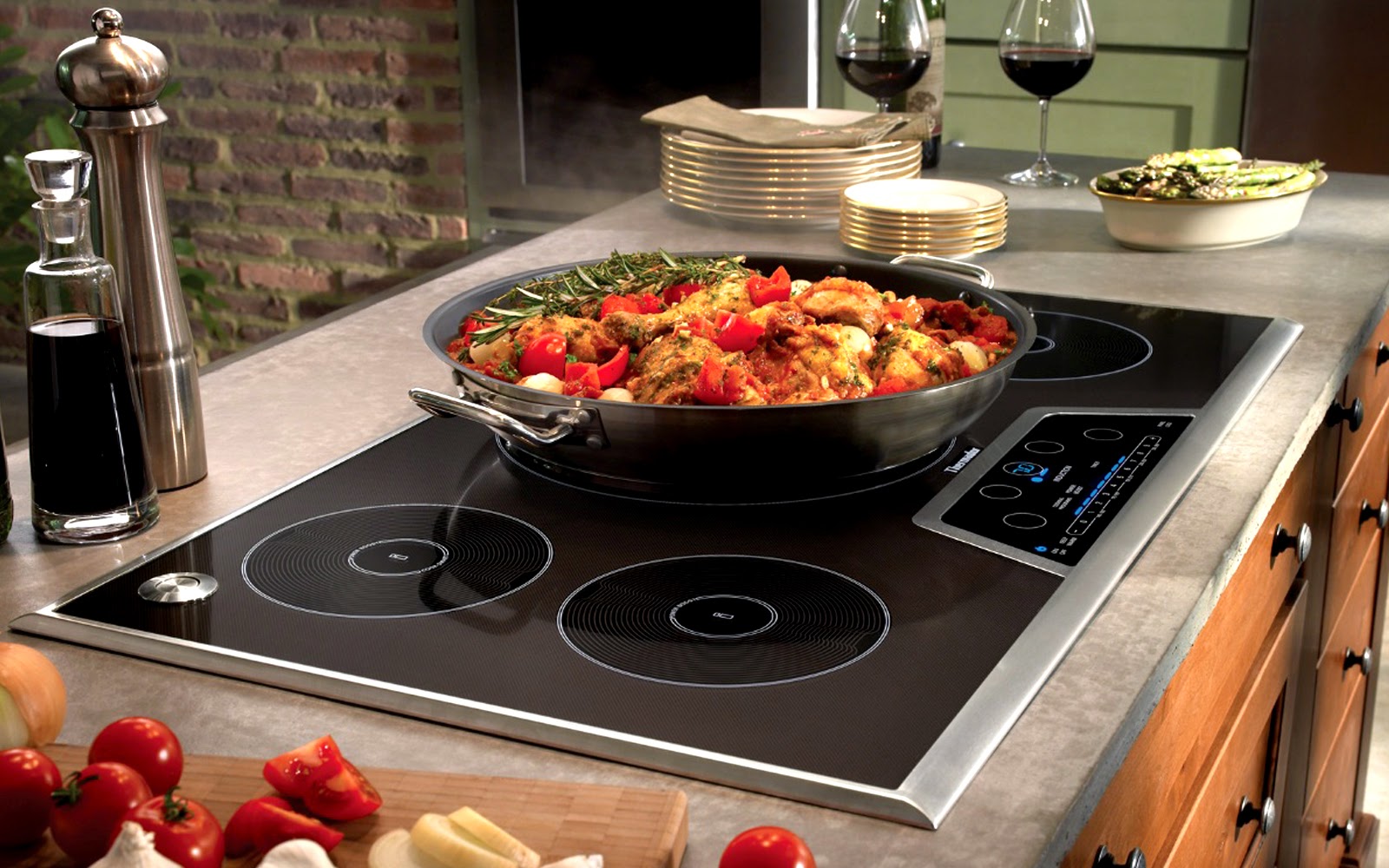Asus ZenBook Pro Duo Dual Screen Laptops
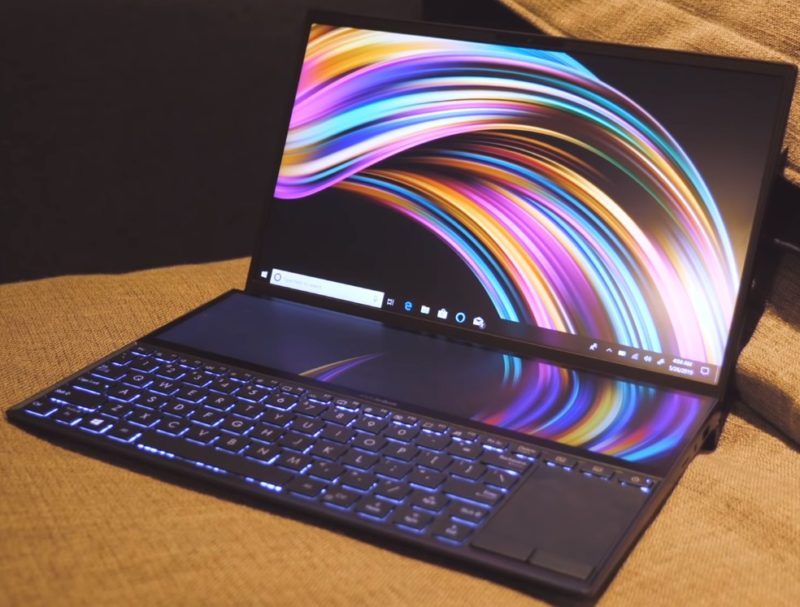
Last year, Asus surprised us with an unusual laptop - ZenBook Pro, where the touchpad was replaced by a touchscreen Full HD display with a diagonal of 5.5 inches. Asus did not stop there, and already in 2019 at the Taipei International Exhibition of Information Technology COMPUTEX, the company introduced its new brainchild - the ZenBook Pro Duo and the junior model ZenBook Duo.
New items are premium laptops with two screens. The devices are suitable for both professionals in the areas of photography, programming, music, 3D design, as well as for gamers and users who need additional space to perform various tasks.
This review will tell you about the features of the model, technical characteristics and functionality.
Content [Hide]
Notebook features
Ergo Lift Technology
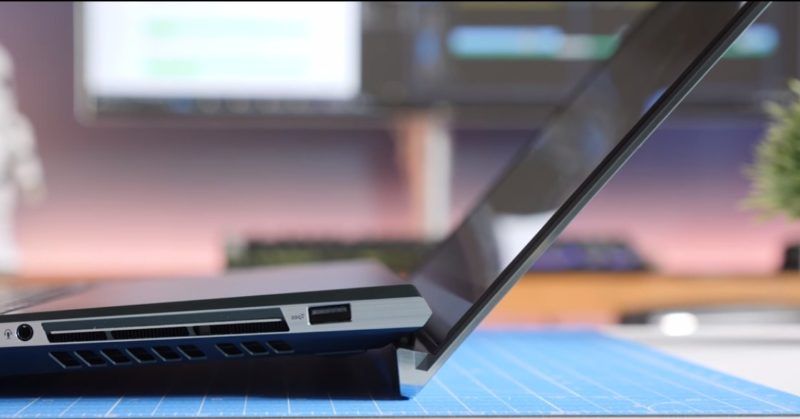
Manufacturers have embodied one of the "highlights" of ASUS ROG Zephyrus in these models. We are talking about innovative technology - ErgoLift, which, when opening the laptop, provides the most comfortable, automatic tilt of the keyboard at an angle of 141 degrees.
Important advantages of the technology:
- ErgoLift creates comfortable conditions when typing on the keyboard. Especially the convenience is felt during long work with texts;
- An important factor is the additional space created for ventilation, which provides a large air flow that can pass through the bottom of the case.
- The improved cooling system ensures high performance during extended use of the device. This plus will definitely be appreciated by a gamer whose main selection criteria is that the laptop does not heat up during games;
- The hinges also provide better sound.
Stylus and stand

ZenBook Pro Duo and ZenBook Duo can be interacted with using the stylus. Moreover, the models support not only the stylus that comes with the kit, but also any others. With the digital pen, you can:
- Leave notes in a special application.It is especially useful to use this function during presentations and conferences, when you need to quickly record information or ideas that come up.
- Edit photos and videos.
- Draw, etc.
Since the case of laptops is high, the kit comes with a special palm rest, which provides a comfortable position for the hands and convenient work with the stylus and keyboard. There are no mounts or magnets in the stand - it is simply applied to the device. Due to the fact that the stand and the laptop do not slip, the interaction will not cause discomfort. Of course, if we are talking about the need to move, then you have to carry the stand separately.
ScreenPad+
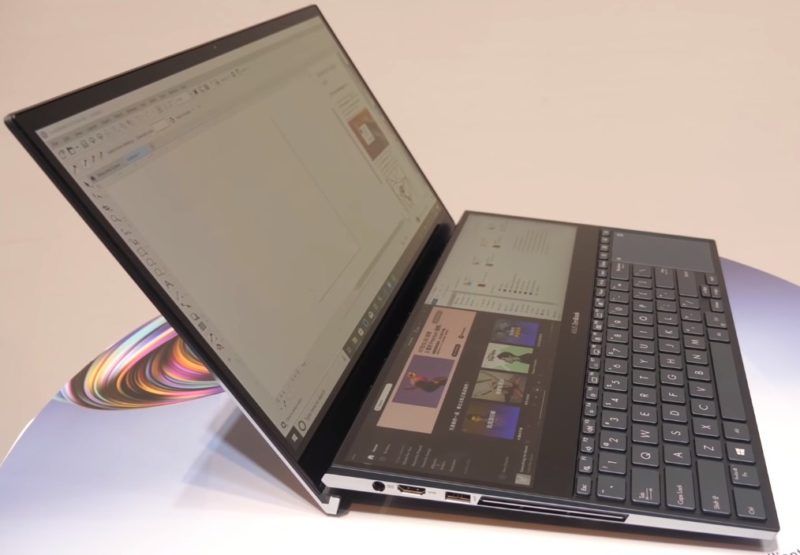
Expanding the boundaries and functions in the form of an additional screen ScreenPad + provides the following features:
- Multitasking mode of work with different applications;
- Content expansion. Often when working with large, long documents, there is not enough space to put all the necessary information in front of your eyes.
- Additional space for working on video editing. Using a large number of tools is much more convenient by moving them to an additional screen.
- Professional image processing. Just like in the previous version, the extra space will be the ideal location for all the necessary tools for the job.
- Display frequently used applications in the form of maps, player, e-mail, messenger, etc.
- Gamers can use the additional screen to place streams and necessary information on it.
- ScreenPad+ will be a great assistant in 3D modeling.
- Convenient mixing, music recording and mastering.
How do the screens interact with each other?
Screen interaction is quite simple, especially for those who have already worked with additional monitors. In order to move the window down, you need to hold the cursor a little while dragging, and choose one of the provided actions: swap the top and bottom images, do nothing, or send down.
Voice assistant
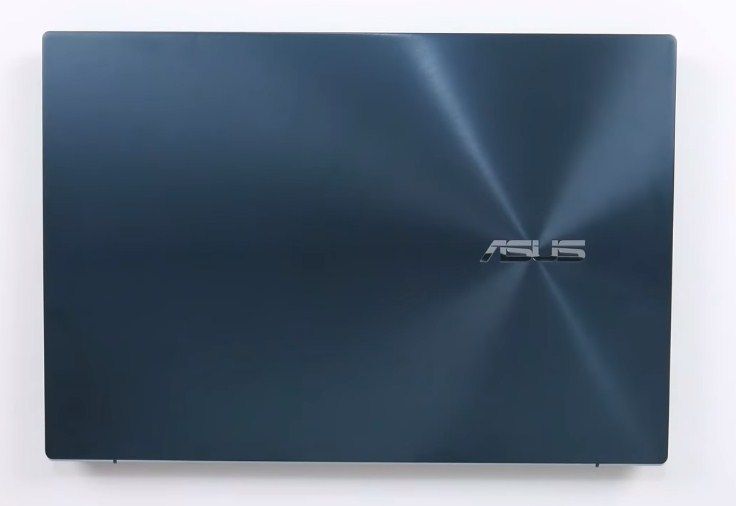
The cloud service has a built-in virtual assistant Alexa, which will perform simple tasks in the form of turning on music or searching for various information. The assistant also supports smart home functions.
A special backlight is installed in the case so that the user can determine whether the assistant is listening to him at the moment.
Owner identification
Laptops are equipped with an infrared camera that identifies the user using windows Hello. Moreover, recognition is possible even in complete darkness.
Review of the Asus ZenBook Pro Duo laptop and its younger version Asus ZenBook Duo
Table with parameters and technical characteristics
| Options | Specifications | |
|---|---|---|
| Laptop model | Asus ZenBook Pro Duo | ASUS ZenBook Duo |
| Size (cm) | 35.9 x 24.6 x 2.4 | 32.3 x 22.3 x 1.9 |
| Weight, kg) | 2.5 | 1.8 |
| CPU | Intel Core i7 9750H or Intel Core i9 8890HK | Intel Core i7 8565U |
| video card | NVIDIA GeForce RTX 2060 | NVIDIA GeForce MX250 |
| Main screen: | ||
| type and resolution | touch OLED, 3840 x 2160, 15.6 inches | non-touch IPS, 1920 x 1080, 14 inches |
| aspect ratio | 16:9, occupies 89% of the area | area coverage 89% |
| Additional screen: | ||
| type, resolution | touch IPS, 14 inches, 3840 x 1100 | IPS, touch, 12.6 inches, 1920x550 |
| aspect ratio | 32:9 | 32:9 |
| RAM | 32 GB | 16 GB |
| Storage device | 256, 512 GB or 1 TB | 256, 512 GB or 1 TB |
| Operating system | Microsoft Windows 10 Home, Windows 10 Pro | Windows 10 Pro, Microsoft Windows 10 Home |
| Interfaces | Bluetooth 5.0, Wi-Fi 802.11ax | Bluetooth 5.0, Wi-Fi 802.11ax |
| Connectors | USB Type-C, 2xUSB 3.1 Gen 2 Type-A, | HDMI, combo audio jack |
| Thenderbolt 3, HDMI and combo audio jack | USB Type-C,2xUSB 3.1 Gen 2 Type-A, Thenderbolt 3, | |
| Sound | 4 microphones, support for Alexa and Cortana, Harman Kardon | 4 microphones, support for Alexa and Cortana, Harman Kardon |
| Battery | 71 Wh | 70 Wh |
Design and ergonomics
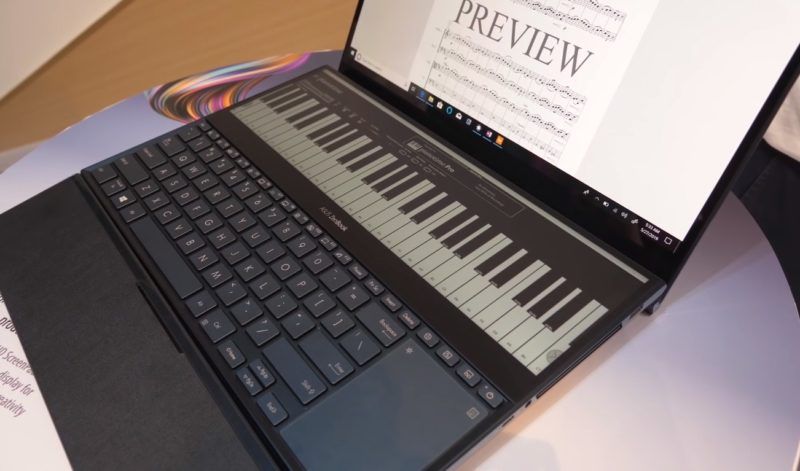
Elegant, ergonomic laptops are made in a classic style, durable case made of aluminum. On the cover, as well as in the previous ASUS ZenBook model, there is a concentric pattern. But the company logo was moved to the left side. The dark blue color of the glossy body goes well with the silver side faces. On thin edges are located:
- DMI;
- thunderbolt 3;
- USB Type-C;
- USB 3.1 Gen 2 Type-A;
- ventilation holes;
- microSD (in the younger version).
After opening the devices, the main screen appears in front of your eyes, which occupies 89% of the area of the top panel. At the top of the screen is the front camera. On the bottom panel there is a second screen, which is located as close as possible to the top panel in order to create the impression of one whole.
Under the additional screen is installed, shifted to the bottom edge, the keyboard. To the right of it is the touchpad. In the older version, the touchpad is used as a digital block and a calculator. Switching between the block and the calculator is quite simple: at the top there are special LED circuits that respond to touch, including the necessary function. The younger model has a regular touchpad, but with separate buttons.
Display and features
ZenBook Pro Duo
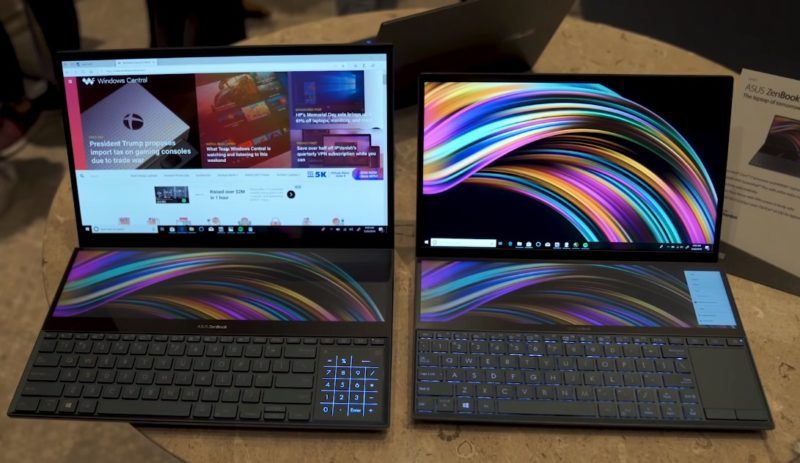
The main NanoEdge display of ZenBook Pro Duo, with a screen diagonal of 15.6 inches, is made using OLED technology and has a glossy finish. The touch screen covers 89% of the usable area of the panel, the aspect ratio is 16:9, and the resolution is 3840 x 2160 pixels. The display supports HDR, UHD, 4K, and the color gamut reaches 100% DCI-P3 and 133% sRGB. Vibrant and true-to-life color reproduction provides ideal conditions for both movie viewing and professional image and video editing.
The optional touch screen has a matte finish. And, oddly enough, in terms of tactile sensations, the matte screen wins compared to the glossy finish. The screen resolution with a diagonal of 14 inches is 3840 x 1100 pixels, the aspect ratio is 32:9.
Unlike the main screen, ScreenPad + is made using IPS technology. Different matrices can create inconvenience in use: IPS has a smaller color gamut than OLED. When stretching one picture on both screens, the user will get different brightness, saturation, different viewing angles and color reproduction. You can slightly improve the situation by calibrating the displays. But even with this action it will be impossible to achieve identity. The secondary display is calibrated through its own OSD menu.
Due to the difference in matrices, professional image and video processing is better handled by the ZenBook Duo, providing an identical picture on both screens.
ZenBook Duo
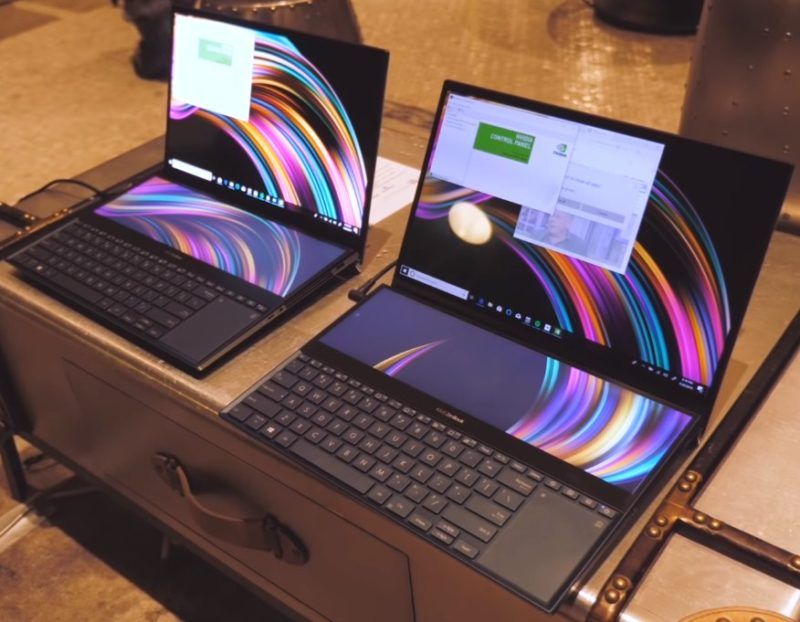
The main screen, with a resolution of 1920 x 1080, the younger model is made using IPS technology. The screen, with a diagonal of 14 inches, as well as the older model, occupies 89% of the front panel area, but it is not touch-sensitive.
The secondary screen also has a matte touch surface and an IPS matrix, but at the same time, a smaller resolution of 1,920 x 550 pixels. The diagonal is 12.6 inches and the aspect ratio is 32:9.
Performance
Pro Duo runs on top-end Intel Core i7-9750H and Intel Core i9-9980HK processors, depending on the modification.
The Intel Core i7-9750H runs on a 14nm process technology. The processor consists of 6 cores, with a maximum frequency of 4500 MHz and 12 threads. The power consumption is 45W. There is support for AMD-V, Hyper-Threading, AVX and AES-NI.
The Intel Core i9-9980HK also runs on a 14nm process, but already consists of 8 cores, the maximum frequency of which reaches 4,800 MHz, and 16 threads. Also supports AMD-V, Hyper-Threading, AVX and AES-NI.
The latest NVIDIA GeForce RTX 2060 graphics card, powered by NVIDIA architecture, delivers highly realistic gaming visuals through ray tracing and anti-aliasing.
Asus ZenBook Pro Duo with powerful hardware inside provides:
- High computing power;
- Maximum performance in multitasking;
- Uninterrupted work even with the most complex calculations;
- High quality graphics.
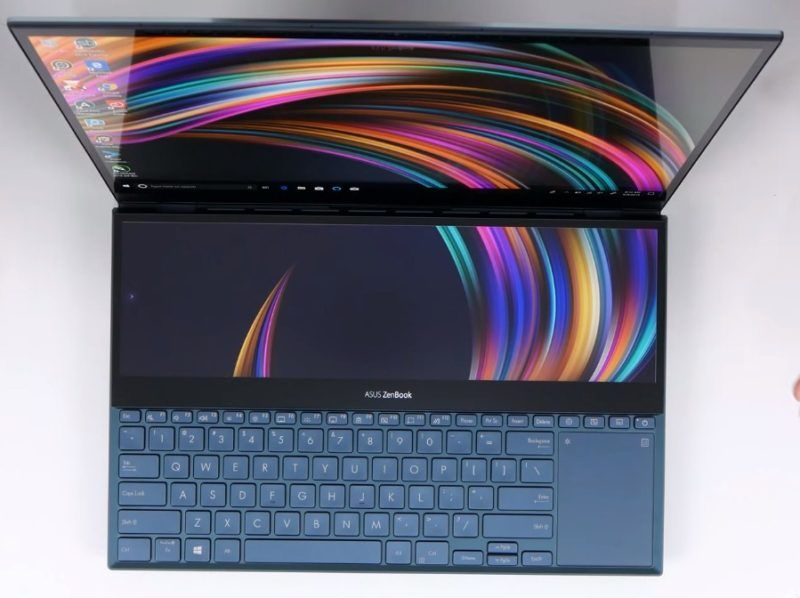
The younger Duo has lower performance. On board are an Intel Core i7 8565U processor and an NVIDIA GeForce MX250 graphics card.
NVIDIA GeForce MX250 has a 14nm process technology, 4 cores and 8 threads. The maximum clock frequency is 4600 MHz.
The NVIDIA GeForce MX250 graphics card runs on the Pascal architecture, with a 14nm process technology and a power consumption of 10W. The maximum frequency is 1038 MHz.
autonomy
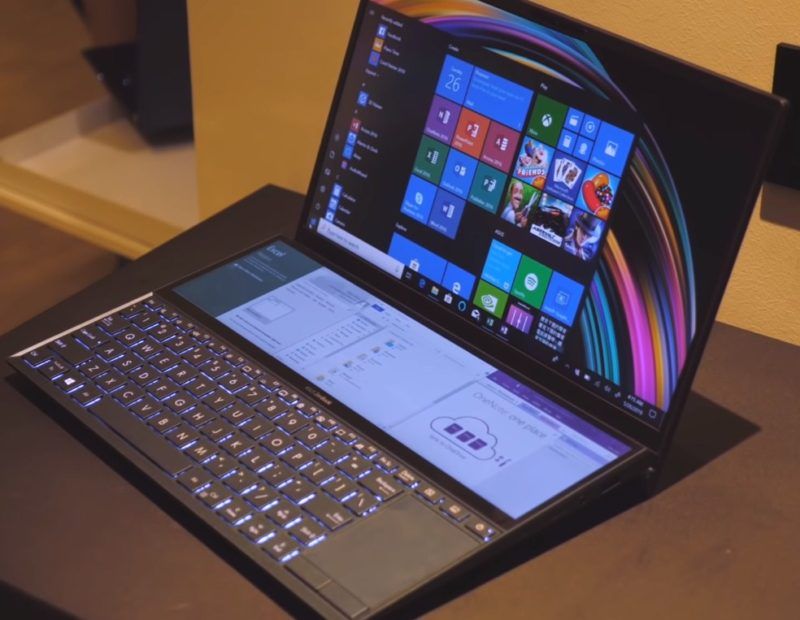
The laptops have a lithium polymer battery.The older model received 71 Wh, the younger one - 70 Wh. With a powerful battery installed, the devices are able to work without recharging for 9 hours.
Sound
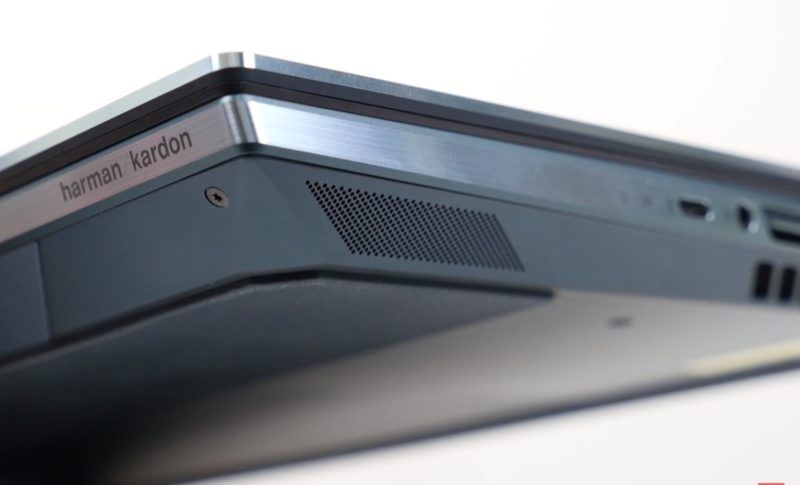
The built-in speaker system, developed by Asus engineers in tandem with Harman Kardon, creates a clear, spacious and loud sound, while maintaining low distortion.
How much does the Asus ZenBook Pro Duo and Asus ZenBook Duo cost?
At the moment there is no exact cost of laptops. But it is already known that the minimum amount that will need to be paid for these extravagant devices is $ 2,500 (160,000 rubles).
Advantages and disadvantages of laptops
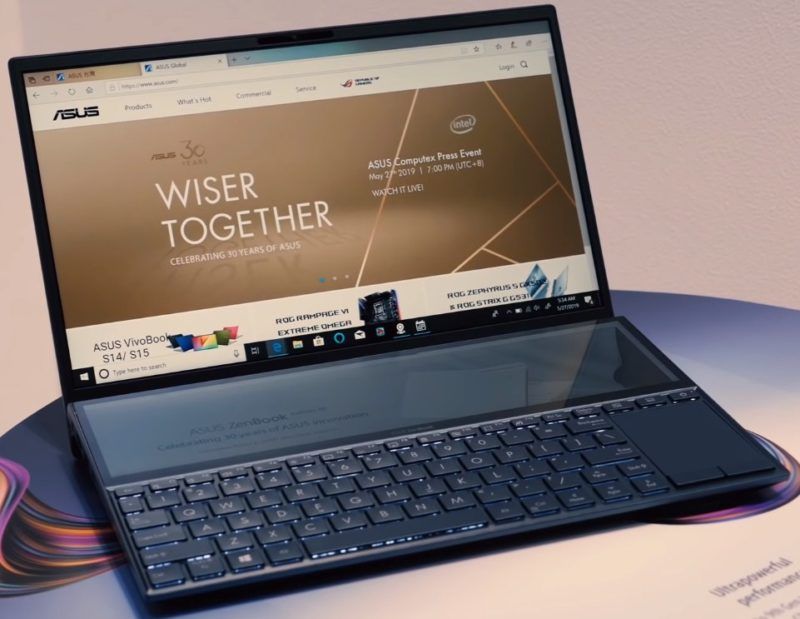
- Elegant appearance;
- Quality assembly;
- Comfortable, ergonomic keyboard;
- Support for working with styluses;
- The presence of a palm rest;
- High-quality display;
- Powerful processor and video card, especially in the older model;
- Good battery;
- High-quality, clear sound;
- The presence of a voice assistant;
- Whether recognition by infrared camera;
- Ergolift technology.
- Lack of fastening palm rest with a laptop;
- Different screen matrices in the older model.
Conclusion
Which laptop is better to take - Asus ZenBook Pro Duo or Asus ZenBook Duo?
Both models have nearly identical impressive specs. But, there are some differences:
The compact Asus ZenBook Pro Duo features a high-quality main display, a powerful tandem consisting of a processor and a video card, and a high resolution of both screens. But at the same time, different built-in matrices are not able to create an identical image on both screens.
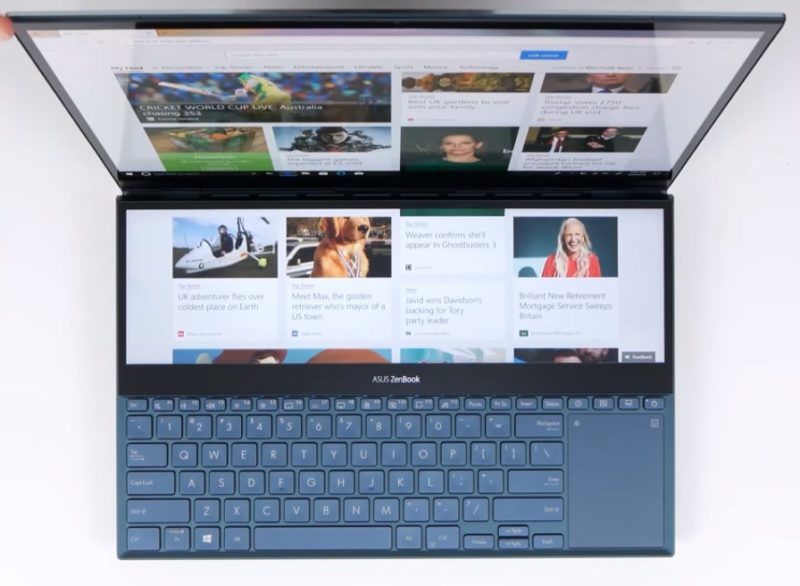
The lightweight Asus ZenBook Duo is distinguished by the same matrices that create an identical image, small dimensions, but at the same time inferior in performance to the older model.
new entries
Categories
Useful
Popular Articles
-

Top ranking of the best and cheapest scooters up to 50cc in 2022
Views: 131657 -

Rating of the best soundproofing materials for an apartment in 2022
Views: 127697 -

Rating of cheap analogues of expensive medicines for flu and colds for 2022
Views: 124525 -

The best men's sneakers in 2022
Views: 124041 -

The Best Complex Vitamins in 2022
Views: 121945 -

Top ranking of the best smartwatches 2022 - price-quality ratio
Views: 114984 -

The best paint for gray hair - top rating 2022
Views: 113400 -

Ranking of the best wood paints for interior work in 2022
Views: 110326 -

Rating of the best spinning reels in 2022
Views: 105334 -

Ranking of the best sex dolls for men for 2022
Views: 104373 -

Ranking of the best action cameras from China in 2022
Views: 102222 -

The most effective calcium preparations for adults and children in 2022
Views: 102016
